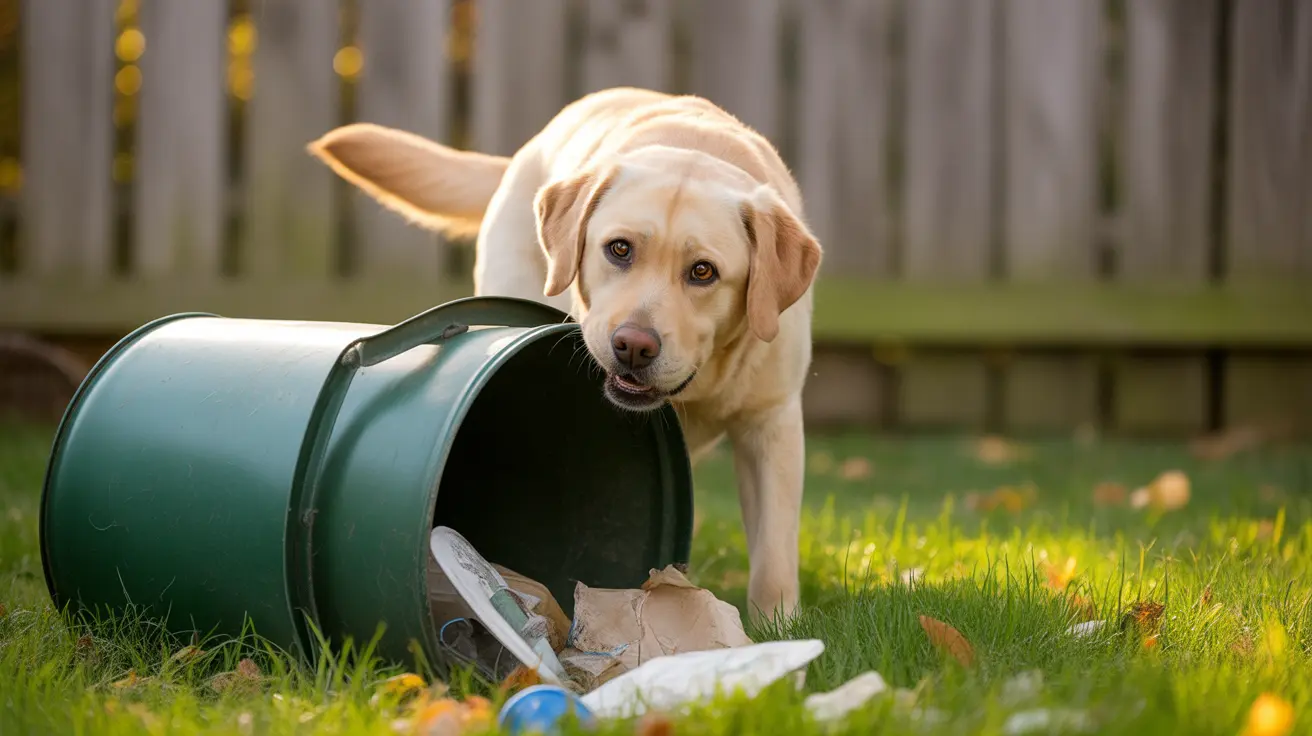When it comes to our canine companions, their tendency to eat things they shouldn't can lead to a common condition known as dietary indiscretion in dogs. This behavior goes beyond simple poor food choices - it encompasses everything from garbage-raiding to consuming non-food items, potentially resulting in serious health complications.
As pet owners, understanding this condition is crucial for preventing and managing these potentially dangerous eating habits. Let's explore the causes, symptoms, and treatment options for dietary indiscretion in dogs, helping you keep your furry friend safe and healthy.
What Causes Dietary Indiscretion in Dogs?
Dogs are natural scavengers, and this instinct often leads them to explore the world with their mouths. Common causes include:
- Unsecured trash containers
- Access to spoiled food
- Unsupervised outdoor exploration
- Inadequate training or supervision
- Natural curiosity, especially in puppies
Some breeds are particularly prone to dietary indiscretion due to their strong food drive. Labrador Retrievers, Beagles, and other food-motivated breeds often top the list of frequent offenders.
Recognizing the Signs of Dietary Indiscretion
Early recognition of symptoms can help prevent more serious complications. Watch for:
- Vomiting and diarrhea
- Lethargy or depression
- Loss of appetite
- Abdominal pain or bloating
- Excessive drooling
- Pawing at the mouth or face
In more severe cases, particularly when foreign objects are involved, dogs may show signs of intestinal obstruction, including repeated vomiting and severe abdominal pain.
Treatment Options and Medical Care
The appropriate treatment for dietary indiscretion depends on what was consumed and the severity of symptoms. Treatment approaches include:
Mild Cases
- Temporary food restriction
- Bland diet introduction
- Probiotics and digestive support
- Increased water intake
Severe Cases
- Emergency veterinary care
- Possible surgical intervention
- IV fluid therapy
- Medication for nausea and pain
Never attempt home treatment without veterinary guidance, as some cases require immediate professional intervention.
Prevention Strategies
Preventing dietary indiscretion is always better than treating it. Essential preventive measures include:
- Secure garbage containers with locking lids
- Keep food stored in secure locations
- Supervise dogs during outdoor activities
- Train basic commands like "leave it" and "drop it"
- Provide appropriate chew toys and mental stimulation
- Maintain regular feeding schedules
Long-term Management and Monitoring
For dogs with a history of dietary indiscretion, ongoing management is crucial. This includes:
- Regular veterinary check-ups
- Behavior modification training
- Environmental management
- Proper nutrition and dietary consistency
- Owner education and vigilance
Frequently Asked Questions
What is dietary indiscretion in dogs, and how does it differ from food allergies or intolerances?
Dietary indiscretion refers to dogs eating inappropriate items or substances, while food allergies and intolerances are specific adverse reactions to particular food ingredients. Unlike allergies, which involve the immune system, dietary indiscretion is simply the consumption of items that shouldn't be eaten.
How can I prevent my dog from engaging in dietary indiscretion, especially if they have a history of eating inappropriate items?
Implement strict environmental management by securing trash cans, storing food properly, and maintaining constant supervision during walks. Training commands like "leave it" and providing appropriate mental stimulation can help reduce scavenging behaviors.
What are the common symptoms of dietary indiscretion in dogs, and when should I seek veterinary care?
Common symptoms include vomiting, diarrhea, lethargy, and abdominal pain. Seek immediate veterinary care if you notice severe or persistent vomiting, bloody stool, extreme lethargy, or if you know your dog has consumed something potentially dangerous.
How do I treat mild cases of dietary indiscretion in dogs, and when should I consult a veterinarian for further guidance?
Mild cases may resolve with brief fasting followed by a bland diet, but always consult your veterinarian first. Contact your vet immediately if symptoms persist beyond 24 hours or if your dog shows signs of severe distress.
What are the potential complications of dietary indiscretion in dogs, and how can I ensure my dog receives the best possible care if they experience severe symptoms?
Complications can include intestinal obstruction, toxicity, or severe gastrointestinal upset. Ensure the best care by maintaining a relationship with a trusted veterinarian, knowing the location of the nearest emergency clinic, and acting quickly when serious symptoms develop.






